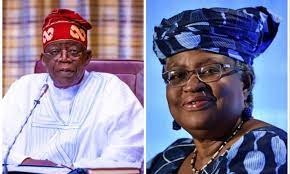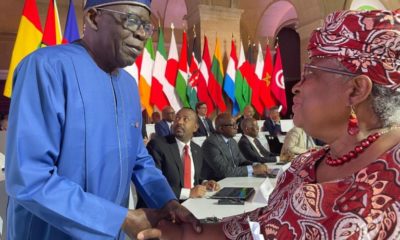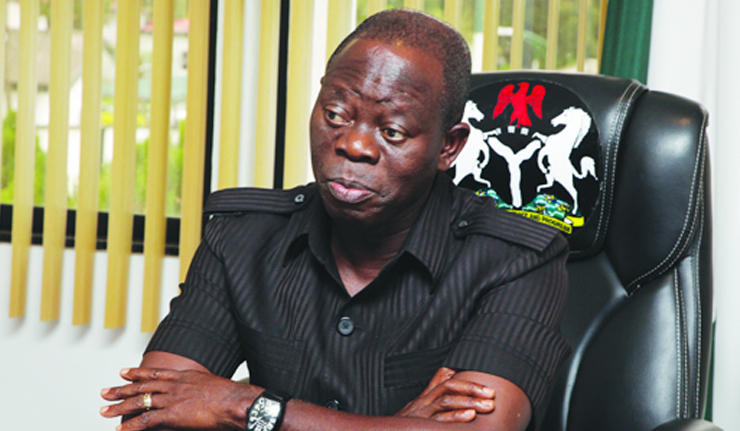Finance
Economic mgt: No one is perfect, says Okonjo-Iweala

ABUJA— NIGERIA’s Coordinating Minister for the Economy and Minister of Finance, Dr. Ngozi Okonjo-Iweala, has said managing the Nigerian economy under the present administration might not be perfect but the government made good efforts to improve the lives of Nigerians.
She spoke in Abuja, Sunday night, at a reception organised in her honour by Ndi-Igbo Youth Organisation in partnership with Voice of All Arewa Youth, in Abuja. Finance Minister, Ngozi Okonjo-Iweala The minister, who also received a certificate for meritorious service, said she will never regret serving the country under President Goodluck Jonathan despite the criticisms and attacks she has been receiving because, the lives of Nigerians, especially youths and women improved significantly under the Jonathan administration.
According to Dr. Okonjo-Iweala, “the youths have been at the centre of the work done by this administration and these are facts on the ground. You cannot change facts but you can try to twist them and at the end of the day facts will come out. You cannot re-write history, and wake up and say these are things we have done or have not done.
A lot of things have been accomplished to transform this economy. “Is it 100 percent? No, and are we to do more? The answer is yes. Have we done everything perfectly? The answer is no and no one is ever perfect. But have we made very good effort to do? and the answer is a resounding yes.
“The support for the various sectors that created jobs that needs to continue and programmes like YouWin, they need to continue and those that are not good by all means you can do away with them or make them better. “No one is perfect but let us build on what is there in order not to lose time on this economy.
Advises youths “For the youths, don’t allow anyone to re-write history, don’t let anyone change the story because what has been done has been done well and let others who are coming in build on this. When they see they are good let them pick them up and build on them.
” The minister noted that based on statistics from the National Bureau of Statistics, the nation needed to create about 1.8 million jobs each year and that the administration put in place, various programmes towards achieving that goal. Her words:
“The first thing we did to encourage young entrepreneurs was to introduce YouWin and we made a target of about 80,000 jobs both direct and indirect. This was an idea I got when I was at World Bank. “As of today, 3, 900 people have benefited from grants of between N1 million and N10 million, and they got it and they did not know anybody.
We also gave grant to 1,200 women because women are good entrepreneurs. Today, 22,000 direct jobs have been created and also 88,000 indirect jobs. “This is one of the programmes I hope the incoming administration will continue because it is a laudable programme and I think is something that will stay a little bit more. We were also able to place 32,000 youths under the Graduate Internship Scheme.”
Business
Nigeria pays US$4.9 billion on petrol subsidy in 2024- NNPCL
It was however noted by Biztellers.com.ng, that although subsidy is back in effect, the main reason for that is the increasingly weak state of the Naira and the country’s extreme dependence on products importation. Also unlike the previous subsidy era, where several oil marketers were getting free subsidy refunds for unverified product importation, this subsidy era is witnessing only one importer, the NNPCL, which in effect is the sole receiver of government subsidies.
Yemie ADEOYE
INSPITE of the official position of the Nigerian government that the controversial petrol subsidy is gone for good as announced by the President on assumption of office, the state owned Nigerian National Petroleum Corporation Limited, NNPCL has disclosed that petrol subsidy is still fully operational in Nigeria, although, under a different identity.
Umar Ajiya, Chief Financial Officer at the NNPCL, disclosed that it cost the company a staggering N7.8 trillion (US$4.9) to cover this price gap in the first seven months of 2024.
Rather than simply referring to these claims as subsidies, he stated that the company is merely managing the price difference in petrol imports on behalf of the federation, stressing that this should not be misconstrued as a return to subsidy payments.
![]() This revelation has reignited discussions on whether the NNPC is indirectly offering subsidies, a concept typically defined as selling a product below its cost price.
This revelation has reignited discussions on whether the NNPC is indirectly offering subsidies, a concept typically defined as selling a product below its cost price.
Documents reviewed by Biztellers.com.ng showed that the term “subsidy” was used extensively in official correspondence between the NNPCL and the presidency, particularly in reference to the “shortfall.”
Recall that President Bola Tinubu reportedly approved NNPC’s request to utilize the 2023 final dividends due to the federation to offset these costs.
However, during a media briefing on Monday about the company’s 2023 audited financial statements, Ajiya refuted claims that the NNPC is involved in any subsidy scheme.
Ajiya further disclosed that the Nigerian government owes the NNPC N7.8 trillion ($4.9 billion) in subsidy-related debts for the period from January to July 2024.
In furtherance of his clarification to the News Agency of Nigeria (NAN), Ajiya insisted that no subsidy payments have been made to any marketer in the last nine years, citing the NNPC’s role as the sole importer of petrol under supply contracts.
He said, “In the last eight to nine years, NNPC Ltd. has not paid anyone a dime as a subsidy; no kobo has been disbursed by NNPC Ltd. in the name of subsidy. No marketer has received any payment from us for subsidy.”
“What has been happening is that we have been importing PMS, which has been landing at a specific cost price, and the government tells us to sell it at half price. So the difference between the landing price and that half price is a shortfall.
“And the deal is between the Federation and NNPC Ltd., to reconcile, sometimes they give us money, so there is no money exchanging hands with any marketer in the name of subsidy.”
Ajiya remained silent on how much of the $4.9 billion could have been remitted to the federation account if the NNPC had not been covering the “shortfall.”
It was however noted by Biztellers.com.ng, that although subsidy is back in effect, the main reason for that is the increasingly weak state of the Naira and the country’s extreme dependence on products importation. Also unlike the previous subsidy era, where several oil marketers were getting free subsidy refunds for unverified product importation, this subsidy era is witnessing only one importer, the NNPCL, which in effect is the sole receiver of government subsidies.
Banking
CBN Denies Currency Devaluation

The Central Bank of Nigeria (CBN) has refuted claims of devaluing the.
Earlier reports suggested that the CBN had devalued the Naira, lowering its exchange rate from N631 to the dollar, compared to the previous day’s rate of N461.60 at the Importers and Exporters (I&E) window.
However, the Central Bank of Nigeria (CBN) released a statement on Thursday through its Acting Head of Corporate Communications, Dr. Isa Abdulmumin, categorizing the report as false information.
In the statement titled ‘CBN Has Not Devalued The Naira’, he said the attention of the apex bank was drawn to the news report by an Abuja based newspaper edition of June 1, 2023, titled “CB Devalues Naira To 630/51”.
However, the CBN stated categorically that the news report was replete with outright FALSEHOODS and destabilizing innuendos, ‘reflecting potentially willful ignorance of the said medium as to the workings of the Nigerian Foreign Exchange Market.’
“For the avoidance of doubt, the exchange rate at the Investors’ & Exporters (I&E) window traded this morning (June 1, 2023) at N465/USS1 and has been stable around this rate for a while.
“The public is hereby advised to ignore the news report by Daily Trust in its entirety, as it is speculative and calculated at causing panic in the market,” the CBN spokesman added.
He, therefore, advised media practitioners to verify their facts from the Central Bank of Nigeria before publishing in order not to misinform the public.
Banking
BREAKING: CBN Increases Interest Rate By 0.5%

The interest rate in Nigeria has been raised to 18.5 percent, up by 0.5 percent, from 18 percent where it was pegged in March 2023.
The Central Banks of Nigeria’s (CBN) Monetary Policy Committee (MPC) resolved to this effect at its third meeting of 2023 in Abuja, on Wednesday.
Governor, CBN, Godwin Emefiele, made the disclosure in the communiqué of the MPC’s meeting, thereafter.
While engaging the media at the end of the two-day meeting, Emefiele, said the committee voted to keep the asymmetric corridor at +100 and -700 basis points around the MPR.
In the view of the MPC, rising inflation rate is traceable to the high energy cost and challenges around the supply chain, among others, which lie outside the corridors of the CBN.
Emefiele said, “The current trend in price development would continue to be monitored by the bank with greater collaboration with fiscal authority to address the drivers of inflation.”
Biztellers reports that the CBN had effected six consecutive interest rate increases, which has seen the rate move from 11.5 percent in March 2022 to 18.5 percent in May 2023.






















